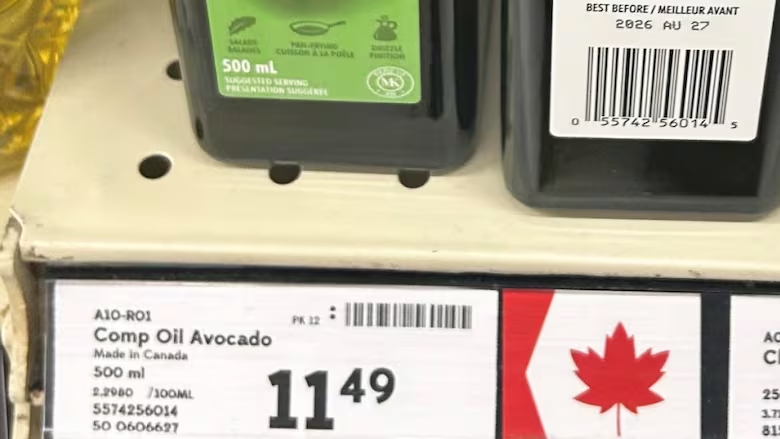Big grocery chains in Canada have once again come under scrutiny after being caught promoting imported products as Canadian — but this time, even with multiple violations confirmed, not a single fine was issued.
The Canadian Food Inspection Agency (CFIA) revealed that between February and May it investigated 12 cases of “maple washing,” where Canadian symbols like the maple leaf or “Product of Canada” claims were used to market food products that were actually imported. Eleven of the cases involved national chains. While regulations allow penalties of up to $15,000 per offence, the CFIA said no fines were levied, noting that grocers corrected the misleading signage once confronted.
One of the most drawn-out cases involved Sobeys-owned Safeway near Edmonton, where avocado oil was advertised with a maple leaf and “Made in Canada” label, despite the bottle’s fine print showing it was imported. Shopper Sheila Young filed a complaint in April, but it took the CFIA four months to formally close the case. “I’m disappointed it took that long,” she said. “It should have been fixed within weeks.”
Other customers have made similar discoveries. In Hamilton, Brenda Nicholls spotted blackberries at Fortinos and asparagus at No Frills sold with Canadian branding, only to find the packaging listed the United States and Peru as their actual origins. While she raised concerns in-store, she was frustrated that misleading signs were so easily overlooked.
Marketing experts argue that without fines, there’s little incentive for grocers to avoid repeat offences. “At a certain point, you say, ‘Enough is enough,’” said Tim Dewhirst of the University of Guelph. “If there aren’t any fines despite repeated violations, the regulations have no teeth.”
Both Loblaw and Sobeys told CBC News they strive for accuracy but admitted challenges with managing inventory from multiple suppliers. Still, critics say that excuse doesn’t cut it for consumers who deliberately seek out Canadian products to support local farmers and businesses.
The CFIA has fielded 160 complaints about country-of-origin claims so far this year, with 40 confirmed violations. Yet fines remain absent, and shoppers like Nicholls say they are losing trust. “The product of Canada label just seemed to be slapped arbitrarily, and it’s misleading,” she said, adding that she now prefers to shop at smaller independent stores where she knows the food is truly local.
For those still loyal to the Buy Canadian movement, the advice is simple: always read the fine print. A maple leaf, it turns out, doesn’t always mean homegrown.


